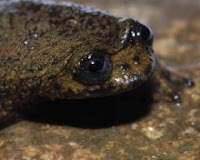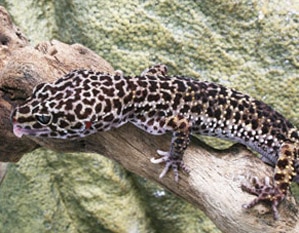Keeping different species of reptiles and amphibians together is an exciting prospect that offers special rewards. However, there are many potential pitfalls. Today I’d like to mention one of the more serious of these concerns – the transmission of parasites.
Particularly troublesome are organisms that are harmless to one animal but deadly to another. The most commonly encountered of these is an amoeba known as Entamoeba invadens. Usually benign in the digestive tracts of turtles and tortoises, it can be fatal to certain lizards and snakes.
Fortunately, this amoeba can be identified via fecal exams, and such should be performed on all turtles to be housed with other reptiles. Animals found to carry E. invadens can be cleared of the parasite by treatment with Metronidizole (a second dose is given after 3 weeks to kill amoebas recently emerged from drug-resistant cysts). Follow-up fecal exams at 4-6 month intervals are a good idea.
Equally important is good husbandry practices – proper temperatures, UVB exposure, etc. – so that your pets’ immune systems will be functioning optimally. As amoebas and other parasites are usually shed in the feces, close attention to hygiene is also vital. You should be especially careful when housing closely-related species together, as a parasite adapted to one will easily infect the other. In fact, micro-organisms that are relatively harmless to one species can easily kill a relative from another part of the world. This is one reason why zoos rarely exhibit, for example, turtles from North America in the same enclosure as turtles from Europe.
Finally, the importance of caution regarding the transmission of micro-organisms between animals and people cannot be over-stressed. This concern applies to healthy individuals and especially to infants, elderly people and anyone with a compromised immune system or similar health concern. Please consult your physician as to appropriate cleaning practices and special situations. I’ll explore this important topic further in a future article, but please forward any questions or comments in the meantime.
An excellent article, Salmonella Hygiene, is available at the web site of the Association of Reptile and Amphibian Veterinarians:
www.araz.org
You can learn more about reptile and amphibian health at the very informative web site of the Arizona Exotic Animal Hospital:
www.azeah.com
 That Reptile Blog – Reptile, Amphibian and Exotic Pet Care and Information
That Reptile Blog – Reptile, Amphibian and Exotic Pet Care and Information





